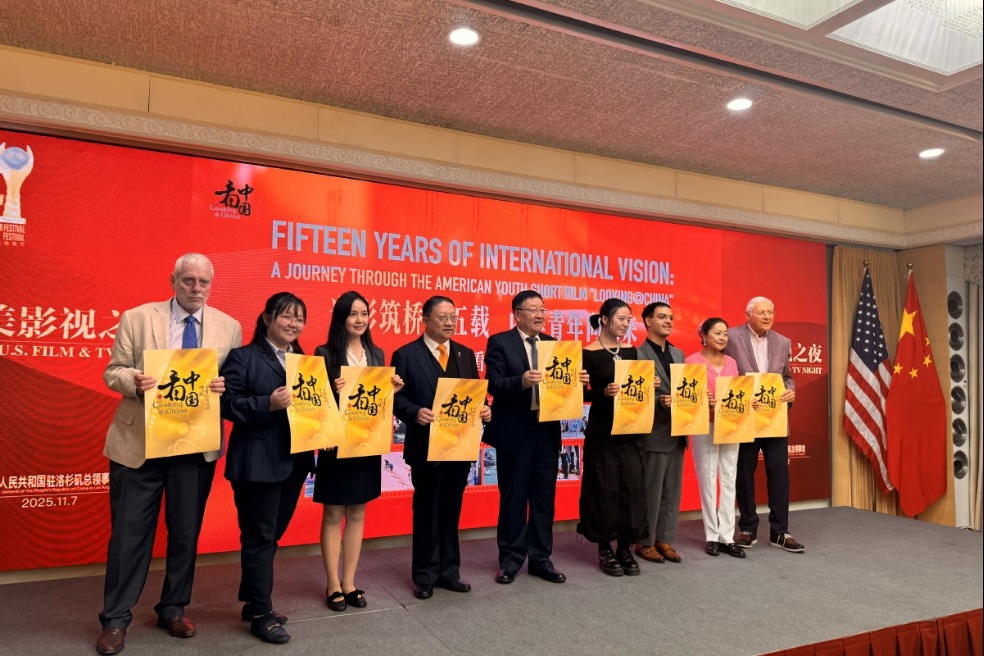Closer ASEAN+3 economic ties urged
By YANG HAN in Hong Kong | China Daily Global | Updated: 2024-12-17 09:43

To maintain sustainable growth amid evolving challenges, the ASEAN+3 countries should develop closer economic and financial cooperation, policymakers and experts said on Monday.
"Given closer ties between countries, stronger financial and economic cooperation is crucial to contain short-term risks," said Choi Sang-mok, deputy prime minister and minister of economy and finance of South Korea.
He also said the fundamental solution to medium and long-term risks lies in boosting growth potential through economic structural reforms, while sustainable growth requires efforts to establish inclusive laws and institutions.
Choi was speaking at the ASEAN+3 Economic Cooperation and Financial Stability Forum in Seoul. ASEAN+3 is a regional cooperation framework composed of the Association of Southeast Asian Nations, China, Japan, and South Korea.
Themed "Sustainable Growth: Reinforcing Resilience, Revitalizing Productivity", the forum gathered policymakers, academics, and experts from multilateral institutions to discuss evolving economic challenges affecting the ASEAN+3 region and to explore potential solutions.
Li Kouqing, director of the ASEAN+3 Macroeconomic Research Office, or AMRO, said the ASEAN+3 region has demonstrated remarkable resilience after the onset of the COVID-19 pandemic and multiple shocks.
"While ASEAN+3 is expected to remain the world's fastest-growing region, our longer-term prospects face formidable challenges, including aging populations, climate change risks, heightened geopolitical tensions, and growing geoeconomic fragmentation," said Li.
Li said the region must get ready to face the pressing challenges by rebuilding policy space and enhancing policy flexibility, revitalizing long-term growth through technology and innovation, and intensifying regional cooperation.
Krishna Srinivasan, director of the Asia and Pacific Department of the International Monetary Fund, or IMF, said Asia remains a bright spot in the global economy.
"Asia remains the engine of global growth, contributing 60 percent to global growth, far more than the share in global GDP of 40 percent," said Srinivasan, noting inflation has returned to targeted levels for most countries in the region.
The IMF has upgraded its regional forecast for Asia to 4.6 percent in 2024 and 4.4 percent in 2025.
Srinivasan said resilient macroeconomic policies are needed to support stronger medium-term growth. Addressing structural challenges is also essential as the region continues to shift toward services after making the successful transition from agriculture to manufacturing, he said.
"With a changing international economic policy environment and increasing risks of trade tensions, regional cooperation is more important than ever," said Masatsugu Asakawa, president of the Asian Development Bank, or ADB.
Asakawa said the ADB's capital management reforms will unlock $100 billion in new financing to help address development challenges, achieve a net-zero transition, and promote inclusive digital transformation.
"We will continue to work closely with ASEAN+3 through policy dialogue, financial and technical assistance, and knowledge solutions," said Asakawa.
Noting concerns over South Korea's political situation after President Yoon Suk-yeol's short-lived martial law decree, Deputy Prime Minister Choi said: "I can confidently assure you that (South) Korea's economic system remains robust, and our emergency response mechanisms are functioning stably."
Bank of Korea, or BOK, Deputy Governor Kwon Min-soo said South Korea is committed to overcoming the current instability while steadfastly pursuing medium to long-term structural reforms. The hybrid format forum was organized by AMRO in collaboration with the IMF and the BOK.
























